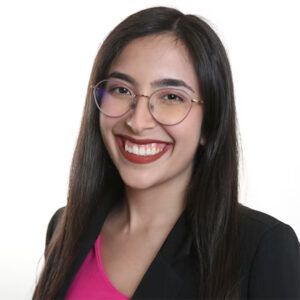We’ve all had them. I call them What can I do? moments. Maybe we read about a crisis in the news. Maybe it was the first time we learned about war. Or maybe it was when a friend was going through something painful, and we found ourselves standing there, unsure of how to help. One way or another, we’ve all come face to face with the question of what we can do in the face of injustice, in the face of the possibility of a better world. We’ve all questioned our own agency.
For me, this question hit suddenly one day. I had a friend who had been discriminated against because of their sexual orientation. Their experience hurt me. I remember that whenever we talked about it, they would go beyond their own story and lament the fact that we both lived in one of many countries still intolerant of sexual diversity. We used to sit and talk for hours, reflecting on the state of things.
It left me disheartened. It wasn’t that I hadn’t been aware of these issues before—but now, someone had entrusted me with their pain. And the weight of it felt too large, too tangled for me to do anything meaningful. I knew my presence, my friendship, my being there wouldn’t heal the part of them that hurt, the part that felt so deeply not just for themselves, but for a community they hadn’t even met yet already loved.
It was during those years of youthful urgency, the years of wanting revolution. We wanted to make a difference; we just didn’t know how. But we believed we had all the time and opportunity in the world.
At the time, we were Literature students, constantly teased about the futility of our chosen path by family, friends, and just about everyone we spoke to. We knew they were wrong—that what we were studying mattered deeply—but, truthfully, we couldn’t always say exactly why. I felt powerless, voiceless—and, in some ways, cowardly.
That question stayed with me. I moved forward, slowly recovering confidence and strength. But over the years, the question of agency kept returning.
As I grew older, faced more challenges, more heartbreaks, met many different kinds of people, and continued to cultivate my craft, an answer began to take shape. Often, we are only able to help in small ways. And our agency usually affects those closest to us. Sometimes it’s even hard to look beyond ourselves, our thoughts, our troubles, to see the world outside.
That might sound discouraging. But to me, it’s exactly the smallness of change that gives it meaning. It’s the sum of the small actions we take – every day, little by little – that adds up to something significant.
At the end of the day, whether in moments of sorrow, joy, or calm, what matters most isn’t our career accomplishments or personal gain. What matters are the people we’ve connected with in positive, human ways, the ones who show up for us, and for whom we show up. What matters is our shared humanity. And how well we treat each other.
I’ve let go of the illusion that my writing or my actions will change the world. Instead, I’ve come to understand that writing is how I exercise my understanding of others, how I stretch the limits of my own empathy, how I hold on to a sense of wonder about this world – a wonder that feels increasingly endangered. That, I believe, is the only road toward meaningful change.
And maybe, toward purpose.


